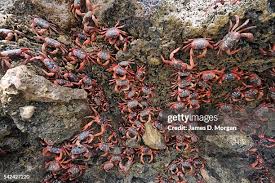Unveiling the Wonders of Chile: Biodiversity and Culture

Introduction: The Importance of Chile
Chile, a long and narrow country stretching along the western edge of South America, is renowned for its stunning biodiversity and unique cultural heritage. With its diverse ecosystems, ranging from the Atacama Desert in the north to the temperate rainforests in the south, Chile presents a microcosm of various climates and landscapes. This article explores the significance of Chile’s natural wonders and cultural richness, highlighting why this nation draws the attention of researchers, tourists, and conservationists alike.
Main Body: Biodiversity and Natural Wonders
Chile is home to over 13,000 species of flora and fauna, making it a vital area for biodiversity. The country’s varied geography supports a range of habitats, from arid deserts to lush forests. One of the most significant areas is Torres del Paine National Park in Patagonia, which attracts thousands of visitors each year with its stunning mountain landscapes, glaciers, and rich wildlife, including guanacos and Andean condors.
The Atacama Desert, recognized as the driest place on earth, offers a different perspective, housing unique adaptations of flora, such as the resilient llareta plant, which can live for up to three thousand years. There are also numerous endemic species found nowhere else on the planet, showcasing the need for ongoing conservation efforts.
Culture and Heritage
Alongside its remarkable natural beauty, Chile’s culture is equally diverse, influenced by its indigenous heritage and colonial history. The Mapuche people are one of the largest indigenous groups in Chile, with a rich cultural presence that influences local traditions, language, and cuisine. Chilean cuisine is characterized by a blend of indigenous and Spanish influences, showcasing dishes such as empanadas and pastel de choclo.
Furthermore, the country’s vibrant arts scene is evidenced in its literature, music, and visual arts, where figures like Pablo Neruda and Violeta Parra have made immense contributions to the cultural landscape. Every September, Chilean Independence Day celebrations fill the streets with music, dance, and traditional foods, showcasing the nation’s pride and identity.
Conclusion: Significance for the Future
As climate change poses threats to ecosystems worldwide, Chile stands at the forefront of conservation efforts. Initiatives aimed at protecting endangered species and maintaining biodiversity are crucial not only for the environment but also for the global community. With increased tourism and interest in sustainable practices, Chile has the potential to lead in environmental stewardship while celebrating and preserving its rich cultural heritage.
In conclusion, Chile offers a unique blend of thriving biodiversity and vibrant cultural experiences. As awareness increases around the need for ecological and cultural conservation, visitors and locals alike must cherish and protect the wonders that this remarkable country has to offer.









